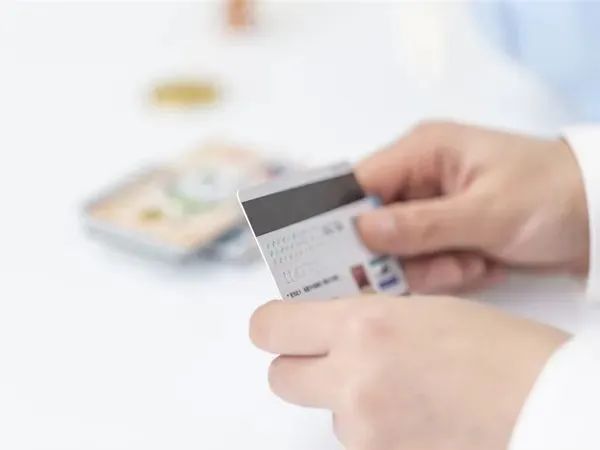Recently, a joint promotion meeting on optimizing payment services was co-hosted by the People's Bank of China and the People's Government of Beijing Municipality. Beijing adheres to the "highest standards" and continues to enhance the quality and efficiency of payment services for foreign nationals and other groups in the city, achieving a number of positive outcomes.

[Photo via VCG]
Convenient Services for Overseas Guests Arriving at Airports
Located on the second floor of Beijing Capital International Airport, directly opposite to Gate B in theInternational/Hong Kong-Macao-Taiwan (Regional) Arrival area is a Payment Service Center for overseas guests. Mike, a US citizen, visited the center to inquire about payment options. Prior to his arrival to China, he confirmed with the booked hotel that he could use his overseas bank card for payment. The staff at the Payment Service Center assisted him in exchanging for a "change purse" containing CNY 100 in cash with several CNY-10 and CNY-5 banknotes. "I don't have to worry about payment issues anymore!" Mike was very much looking forward to his trip to Beijing.
The overseas guest payment service demonstration zones at Beijing Capital International Airport and Beijing Daxing International Airport, jointly created by the People's Bank of China, the State Administration of Foreign Exchange, and the People's Government of Beijing Municipality, officially started operation on February 5. After arriving in Beijing, overseas guests can access professional consultation and guidance services regarding payment services in time and at the nearest locations.
The customs halls at both airports have introduced noticeable signs for consultation related to payment services. In addition, upgraded ATMs (automated teller machines) that are capable of dispensing CNY-10 banknotes have been installed. The foreign exchange outlets have been optimized, and more self-service currency exchange machines have also been installed. This ensures that comprehensive currency exchange services are available at the international departure and arrival areas, capable of exchanging currencies from over 40 countries. Foreign currency names can be displayed in the local languages for the first time in China. In addition, the upgraded currency exchange services cover almost all foreign merchant cards.
Since their launch on February 5, the demonstration zones and service centers of the two airports have been operating smoothly. As of March 24, the payment service center has served nearly 3,000 overseas guests, and the cumulative number of transactions made by overseas individuals using foreign cards in the demonstration zone has reached 103,000.
Comprehensively Optimizing Payment Acceptance Environment in Various Scenarios
To better safeguard consumers' right to choose their preferred payment methods, Beijing has coordinated with various governmental authorities, commercial banks, and payment institutions to optimize various payment environments. The city aims to promote the complementarity of different payment methods such as bank cards, cash, mobile apps, etc.
"This ATM can directly dispense CNY 10, which is very friendly to us elderly people!" Zhang exclaimed excitedly after successfully withdrawn small amounts of cash at the Fuxingmen branch of the Industrial and Commercial Bank of China, which is located on the Financial Street of Beijing. On the other side, a green channel for exchanging "change purses" containing small-amount banknotes has been opened, and a foreigner working nearby quickly received some changes. In business districts such as the China World Trade Center, CBD and Silk Street Market, POS machines that support payments with foreign cards are prominently placed at cashiers of all stores, attracting flows of foreign customers in a continuous way.
Beijing continues to improve the acceptance environment for bank cards, steadily increasing the coverage rate of overseas bank card acceptance terminals (POS machines) for key merchants in large business districts, tourist attractions, cultural and recreational venues, hotels, transportation hubs, and other locations. In the meantime, it encourages entities in livelihood and foreign-related fields such as shopping, dining, accommodation, and tourism to publicly commit to accepting cash. As part of the city's initiative for enhancing payment convenience, commercial banks have also distributed 86,000 "change purses" to facilitate transactions.
A Batch of Prominent Problems to Be Resolved by End of April
The improvement of payment convenience entails collaborative efforts from various relevant authorities. Beijing Municipal Commerce Bureau has identified 39 key shopping malls catering to overseas customers. Beijing Municipal Bureau of Culture and Tourism has prioritized 10 tourist attractions and 198 hotels for optimizing payment environments. Beijing Municipal Commission of Transport is considering the implementation of non-contact bank card payment solutions for taxis and Beijing Subway, focusing on key routes and major stations. Beijing Municipal Finance Bureau, Beijing Municipal Forestry and Parks Bureau, and other authorities have conducted researches to address the issue of sharing payment fees for attractions and parks operated by public institutions. Additionally, the government of each district will diligently fulfill its responsibilities within its jurisdiction.
Beijing has released a timetable and a roadmap to further enhance payment convenience. By the end of April 2024, the city will concentrate on implementing a series of projects to facilitate payments and solving a number of prominent problems associated with payment services; by the end of June 2024, the city will continue improving the levels of friendliness and convenience of mobile payment, bank card payment, cash payment, and other payment methods; by the end of December 2024, the city aims to essentially address the pain points and difficulties in payment services for foreign visitors to Beijing and other communities. Additionally, Beijing will further optimize the payment acceptance environment to better meet diverse needs for payment services.


